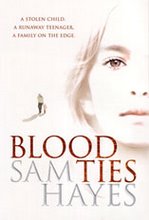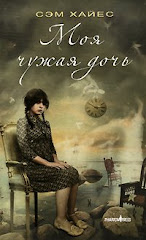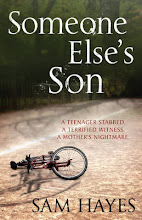Everyone has one, don't they? A character, that is. It's what makes us human. It's what makes us react to situations. It's what makes others either like or dislike us. It is, ultimately, responsible for our decision making and therefore rather vital to have in a novel. If anything's going to actually happen, that is.
Years ago, when I wasn't very experienced... (and I know, compared to some authors, I still have a long way to go - although I'm nearly done writing my sixth published novel) ... I weighted my characters with layer upon layer of traits, attributes, reactions, ways of thinking, emotion, how they looked, navel-gazing, so that there simply wasn't any room for a story. Or if there was, no one noticed it because it was buried beneath all these over-zealous characters. It was a drag to read. No one in real life has that much 'character' - not all at once, anyway, and not so contrived.
It was an interesting and slow process, how I learnt about characterisation. People would politely ask 'What is your book about?'. (I'd written several complete novels before anything actually got published). My answer was usually something along the lines of 'A feisty woman who is angry, opinionated, and has a passion for XYZ. Then there's a man who's bereft, sad, lonely... A daughter who's rebellious, crazy, annoying...' I couldn't tell them what the book was actually about - er, because it wasn't really about anything. Apart from a bunch of overwrought characters.
After a while, because of all the comments/feedback I'd been getting from various sources, I began to tone down the larger-than-life players who broke into my work. They became more subtle, more realistic, and of course ultimately more believable. If something doesn't ring true with a reader, if you give them reason to shout out Yeah right enough times, then bit by bit you'll lose their attention. So this left me with a cast of characters who, OK, might have been a bit too bland in many ways, but at least they weren't all stereotypes and overreacting to, er, nothing.
The thing was, I was left with these characters, but there was no story as such. No plot. No momentum. Nothing to bring out their true worth. That's where story comes in (see future post). Without a story to tell, there's no way for your readers to get to know your characters. Without characters, there's no way to tell your story. They are chained together. It was at that time, surprisingly late on in my many failed attempts at publication, that I finally realised this simple fact. Had I not flunked out on my MA in Creative Writing, I would have learnt this a lot sooner.
It was a dawn breaking over my keyboard. An epiphany. And it was incredibly hard work at first, having to think of this whole 'story' thing. But it didn't half give the characters I'd been struggling with a sense of purpose, a real sense of place and belonging in my work. This may sound rather simplistic - and indeed it is. The crafting of an entire novel is far more intricate, dependent on so many other factors (not least a good editor). I doubt I'm qualified yet to even hazard a guess at what it is that makes a novel 'work'. But what I do know - from my own experiences only of course - is that character and story are intrinsically linked. It's even hard to write this post about characters without going on about story.
So now, when my feisty, angry, opinionated woman with a passion for German accents, sports cars, and train spotting strides onto the pages, or a bloke with an eating disorder, a divorce and a body odour problem, just won't go away, I'll throw a good dose of story at them. Watch them curl up and die.
Thursday, 2 October 2008
Subscribe to:
Post Comments (Atom)






















.jpg)




2 comments:
"Had I not flunked out on my MA in Creative Writing, I would have learnt this a lot sooner."
From the work I have seen from most MFA grads in Writing, I think you would have learnt it a lot later. "Story" and "plot" are naughty words around most university writing programs. They are okay with "character," but bigger on "style" and "theme"
Do you think? That makes me feel a bit better. I was pretty good at navel-gazing and writing about nothing back then. It was a while ago now - back in '96. I'd quite like to be a fly on the wall at a Creative Writing MA.
Post a Comment